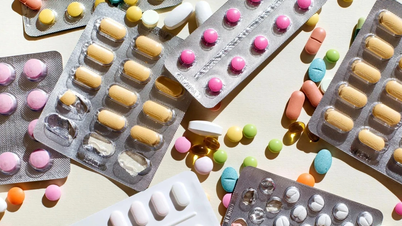A study recently published in the journal Nutrition, Metabolism and Cardiovascular Diseases found that researchers explored the relationship between coffee consumption and the rate of abdominal aortic calcification (AAC) in two groups of healthy volunteers and those with medical conditions - including high blood pressure, diabetes and cardiovascular disease (CVD).

Drinking too much coffee can be "counterproductive" (Illustration photo from the Internet)
Researchers from the First Affiliated Hospital of Xi'an Jiaotong University and the Xi'an Key Laboratory of Environment and Genetics of Disease (China) examined AAC as an early marker of atherosclerosis.
Atherosclerosis is a condition that can cause blockage of blood flow, behind many leading fatal events such as heart attack or stroke.
More than 2,500 study participants were assessed for AAC severity and divided into three groups: no coffee drinkers, low coffee drinkers, and high coffee drinkers - with a cutoff of 390 grams per day between low and high.
A standard cup of coffee usually contains around 100 grams of black (brewed) coffee.
The results showed that in completely healthy people, AAC scores did not differ significantly between groups. However, differences arose in the group of people with pathologies.
AAC scores were 0.72 higher in the high coffee consumption group compared with the non-consumption group for hypertensive patients; 1.2 higher for diabetic patients; 2.0 higher for CVD patients.
The risk was not seen in people who drank decaffeinated coffee, suggesting that the effect was due to the caffeine in the coffee. This should make many people cautious about other caffeinated drinks, such as tea.
According to the research team, the above results do not mean that we should give up coffee, but rather moderate consumption - which has been shown to reduce the risk of many diseases, including atherosclerosis, cardiovascular diseases, type 2 diabetes, some forms of cancer...
Just one cup of coffee a day is enough to reduce the risk of premature death from all causes. Conversely, a sudden increase in blood pressure immediately after drinking coffee may underlie the link between excessive drinking and adverse effects.
Therefore, the general advice is still to drink coffee in moderation, especially for people with health problems. The most common recommendations limit consumption to 2-3 cups or 3-5 cups/day, depending on the strength of the coffee.
Source





![[Photo] Anh Hoang - Dinh Duc successfully defended the men's doubles championship of the National Table Tennis Championship of Nhan Dan Newspaper](https://vphoto.vietnam.vn/thumb/1200x675/vietnam/resource/IMAGE/2025/5/23/d6ab3bcac02c49928b38c729d795cac6)
![[Photo] Top players gather at the 2025 Nhan Dan Newspaper National Table Tennis Championship](https://vphoto.vietnam.vn/thumb/1200x675/vietnam/resource/IMAGE/2025/5/23/9ad5f6f4faf146b08335e5c446edb107)























































































Comment (0)